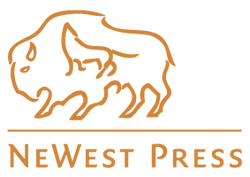Those Who Know: 20th Anniversary Edition
by Dianne Meili
Find at your local bookstore
978-1-927063-13-2 | 2012 May | 394 Pages
ABOUT THIS BOOK
The Elders in Those Who Know have devoted their lives to preserving the wisdom and spirituality of their ancestors. Despite insult and oppression, they have maintained forbidden practices for the betterment of not just Indigenous Peoples, but all humankind. First published in 1991, Dianne Meili’s book remains an essential portrait of men and women who have lived on the trapline, in the army, in a camp on the move, in jail, in residential schools, and on the reserve, all the while counselling, praying, fasting, healing, and helping to birth further generations. In this 20th anniversary edition of Those Who Know, Meili supplements her original text with new profiles and interviews that further the collective story of these Elders as they guide us to a necessary future, one that values Mother Earth and the importance of community above all else.
- Read Alberta: 10 Books for National Indigenous History Month
- Winner of the Trade Non-Fiction Book Award at the 2013 Alberta Book Publishing Awards
Henry Laboucan places his black cowboy hat on the table and smoothes his long grey hair. In a restaurant booth on a quiet winter afternoon in Edmonton, we transcend the mundane and slip back through the years when elders like Peter O’Chiese, Eddie Bellerose, and Robert Smallboy were still alive. Henry spent a lot of time with these celebrated men after they chose him to help mediate between themselves and government officials so they could bring cultural programming into jails. The elders knew that Aboriginal men were starving for spirituality in prison. They were successful in their bid to be able to enter jails and share ceremony and teachings with inmates who were trying to change their lives for the better. Henry shares a story of how Peter O’Chiese would shoo him away when he tried to help the old man chop wood. “I mean, here’s this elder at ninety-nine years of age still swinging an axe,” Henry recalls. “But he didn’t want any help. He just said that cutting wood was his life.” Henry opens his ever-present notebook to a clean page and draws a broken circle on it. He moves his pen a quarter of the way around it. “This was my childhood, when I was four or five years old. I remember having a good time. Some of those old people at that time were so powerful. They could levitate,” he comments. He points to a space in the circle and tells me it represents the time he spent in residential school, and the magic died for him. In the middle of the circle he draws a smaller circle and writes the word “wisdom keepers” inside. “We need to gather the strongest of the strong elders we still have and learn from them. If we don’t, everything is going to go. We won’t have anything of that powerful way of life left,” he states. He’s right, and he has summed up why I wanted to develop this Landmark Edition of Those Who Know. When I first thought about the prospect, I had some hesitation. All but two of the elders I’d interviewed twenty years ago had passed away and I thought it might be too sad to revisit their stories. I also believed that elders’ roles in their communities had lessened and their wisdom was being ignored. With resources being exploited in this province more aggressively than ever, I knew that Aboriginal people’s link to the land was becoming more fragile, and the clash of cultures was an even bigger problem than it had been two decades ago. Ultimately, I decided that there was never a more important time to hear from the elders than now. And so I began, starting out the same way I had twenty years ago, with my notepad and car, driving roads I hadn’t travelled down since the early 1990s.
- Choosing a selection results in a full page refresh.
- Press the space key then arrow keys to make a selection.

